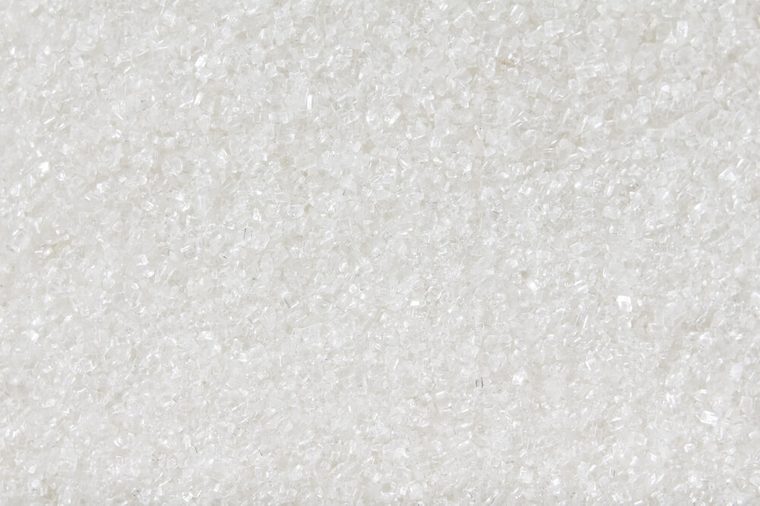
Sugar
It’s no secret excess sugar isn’t exactly sweet for your health, but research indicates it may take a toll on your brain as well as your waistline. In one animal study, UCLA researchers found that rats fed a solution of fructose had a harder time navigating a maze, a sign of slowed learning and memory loss, compared to a second group of rats who were also given omega-3 fatty acids, which are thought to have a brain-boosting effect. The researchers suspect that the fructose-only diet decreased brain activity because it affected insulin’s ability to help brain cells use sugar to process thoughts and emotions. Certain omega-3 fatty acids may buffer the brain from the harmful effects of fructose. While this research is preliminary, it’s just general good health advice to minimize your intake of added sugar and up your consumption of foods rich in omega-3s, including walnuts, salmon, flax seeds and soybeans to your meals.
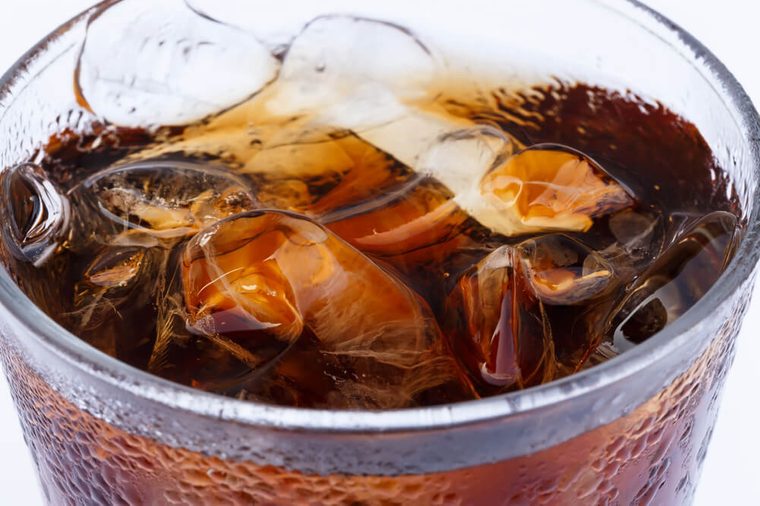
Diet soda
A 2017 study in the journal Stroke looked at diet patterns and incidents of stroke and dementia in more than 4,300 participants. Over ten years, those who drank the most artificially sweetened—but not sugar-sweetened—beverages were most likely to be diagnosed with dementia. Because it’s impossible to prove the link was caused by the beverages and not another source—for instance, those with diabetes might have been more likely to reach for artificial sweeteners—the study should be taken with a grain of salt (or sugar). Still, paired with these unhealthy effects of soda (including diet), the study is just one more reason to swap your soda for sparkling water.
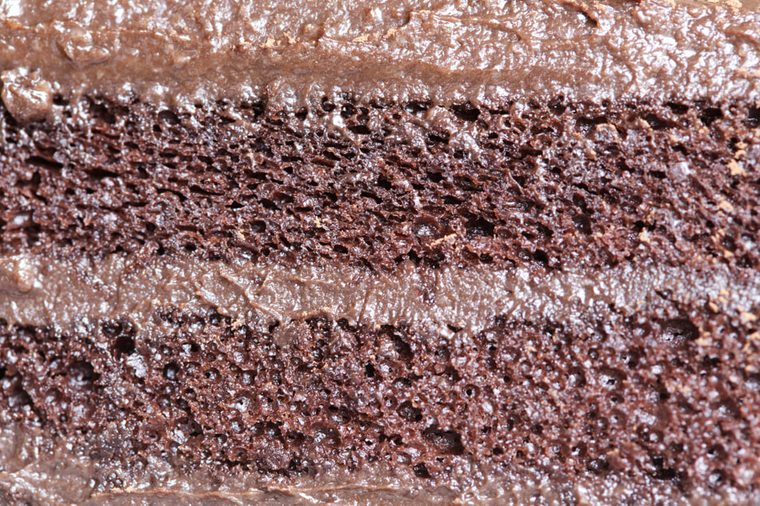
Baked goods
It’s not just the sugar you need to worry about. Trans fats can also pose a real risk to your long-term brain health. A 2019 study in Neurology followed 1,628 adults over 60 without dementia across 10 years. Of the 377 participants who developed dementia, researchers found that higher levels of serum elaidic acid—an unsaturated trans fatty acid— were associated with a greater risk of developing all-cause dementia. So check those nutrition labels, especially on shelf-stable frosting and other processed food, to make sure you’re in the clear.

Red meat and butter
A diet high in “bad” saturated fat may hurt brain function, according to Harvard research published in the Annals of Neurology. When researchers studied the eating habits and tested the brain function of 6,000 women for an average of four years, they found the women who ate the most saturated fat scored lower on tests of brain function and memory. On the other hand, women who ate the most monounsaturated fats (found in foods like olive oil and avocado) had higher scores. You don’t need to shun saturated fat sources entirely, but choose low- or non-fat versions of animal products, such as cheese, yogurt and milk. Avoid processed meat, like bacon, and stick to lean cuts. Get more protein from vegetable sources, like soy and legumes.

Chips, pizza, and other junk food
Will junk food rot kids’ brains? A 2011 British study of nearly 4,000 children found that those who ate primarily junk food (lots of processed and fast food) at age three had a small drop in IQ five years later compared with children who ate healthier diets. (And the link remained after researchers accounted for confounding variables, such as socioeconomic status and parents’ education.) Early diet choices especially seemed to affect kids’ verbal abilities, according to Time. The study suggests that smart diet choices may be particularly crucial during early years of rapid brain development. It can be tricky to get young picky eaters to eat healthy foods, but remember that kids need repeated exposure (sometimes a dozen or more times) to “like” a new food. So don’t give up so easily! And many classic kid favorites, like string cheese and yogurt, make for healthy snacks instead of processed cookies and chips.
Eating These Foods Can Lead to Premature Death, Says New Study
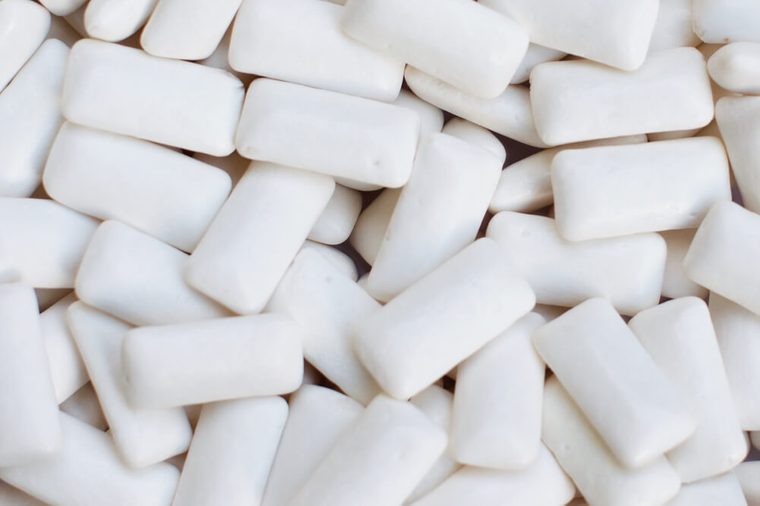
Gum
Does blowing that bubble boost or bust your brainpower? Here, the research is mixed. A recent British study published in the Quarterly Journal of Experimental Psychology found that chewing gum during a memorization exercise impaired participants’ short-term memories. The researchers believe the act of chewing may get in the way of concentrating on memory tasks (In this case, participants were asked to learn the order of items in a list). The finding contradicts previous research, which found a positive association between chewing gum and mental tasks. Because of mixed study results, you might not want to spit just yet. But be sure to include other brain-boosting habits in your daily routine, such as drinking water (dehydration can affect focus and acuity), getting plenty of sleep, and playing brain games.
Over 40? Here Are 9 Clever Memory Exercises to Start Doing Today
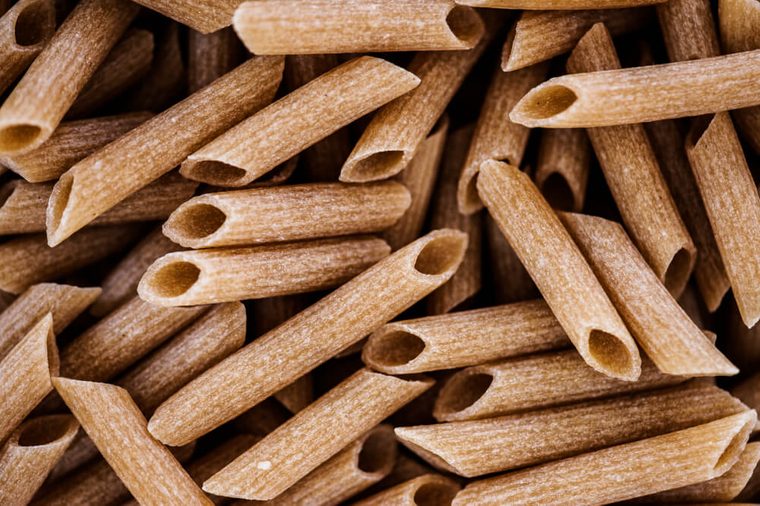
Low-carb diets
Sorry, ketogenic diet: Ditching carbs can sap brainpower (along with energy and mood). A small Tufts University study of 19 women between the ages of 22 and 55 found that when dieters eliminated carbohydrates, they showed a gradual dip in cognitive skills (particularly on memory-related tests) compared to a group who stayed on a low-calorie diet that included carbs. Carbs aren’t evil—your body needs them for many important functions, including fueling your brain. So avoid diets that eliminate or severely restrict them, and choose healthy options, like whole grain pastas and breads, brown rice, and quinoa.
The Best and Worst Diets for Your Cholesterol, Says UCLA Cardiologist
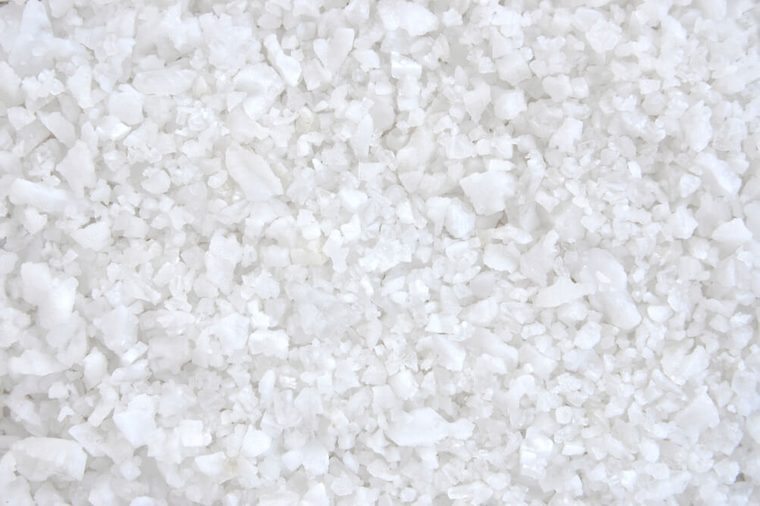
Salt
You already knew sodium could wreak havoc on your vascular system, but that’s just the beginning of the risks associated with salt. A 2012 study found that older Canadians who consumed high levels of sodium and didn’t exercise had quicker cognitive decline than their low-salt counterparts, who actually improved over time. And it might not just be related to blood flow. Weill Cornell Medicine researchers fed mice eight to ten times more sodium than rodents normally eat, which was “comparable to the high end of the spectrum of human salt consumption.” Even when the salt didn’t affect their blood pressure, the mice eating the most salt lost their ability to find their way through a maze and eventually stopped responding normally, according to the results in Nature Neuroscience. To keep your brain and body healthy, the USAD says you should stick to less than 2,300 milligrams of salt per day.
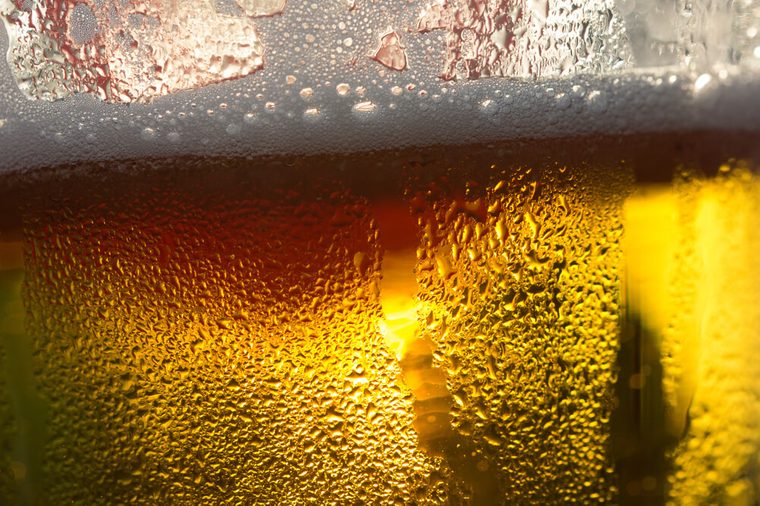
Alcohol
Even moderate drinking can hurt your brain. A 30-year BMJ study found that adults who drank 14 to 21 units of alcohol (about seven to ten servings, depending on the size and strength of the drink) were more likely to have decline in the hippocampus—the part of the brain associated with long-term memory—than those who drank less. Heavy drinkers were at even bigger risk. The study only showed a link and didn’t prove drinking caused the cognitive decline; meanwhile, other studies have linked moderate drinking with health benefits such as lower risk of heart disease. Bottom line: weigh the risks before you imbibe.
Drinking This Much Alcohol a Week Can Negatively Affect Your Brain
